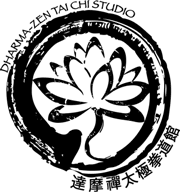Here is a Taoist story: When Zhuang Zi’s wife died, Hue Zi went to offer his condolences but he saw Zhuang Zi drumming a tune and singing a song. Hue Zi said to Zhuang Zi: “Your wife took care of you and the household. Now that she has died you do not feel sad but go on to drum a tune and sing. This is improper.”
Zhuang Zi replied to Hue Zi: “It isn’t how you think. At first when she died, I was not devoid of feeling. However, I later reflected: Before being born to life, people are without bodily form and vital energy. In the natural process of transformation, there comes vital energy, then the body forms, then comes birth and life. Now that my wife is dead, the relationship between these things is just like spring, summer, autumn and winter: a rotation of the seasons. She is resting in Nature’s realm now. If I still snivel and wail, then I behave like one who is ignorant of Nature’s processes. So that why I stopped crying and am drumming and singing.”
We all like the good things. For instance, we like to hear good news, see nice things, and eat good food. Simultaneously we try to push the bad things away. But what is good and what is bad or what is valuable and what is valueless depends on the person’s heart. Even when the same thing happens to the same person it is not always good or bad. For example, in Taiwan, summer always brings typhoons with very strong winds and a lot of rain. They cause some people to get injured or even die and many lose their property. So people who live in Taiwan usually don’t like typhoons. But sometimes when it doesn’t rain for a long time water shortages occur and people start to wish for a typhoon with its abundant water.
This winter there is no snow in Germany, causing a lot of ski hills to close. People who run the ski hill and who like to ski think this is a very bad winter. But people who don’t like to ski or who don’t like snow will think this is a nice winter. Typhoons and snow of themselves are not good or bad, they are just one part of Mother Nature. It is people’s situation that judges whether they are good or bad.
I teach the same Tai Chi forms and Chi Kung at different locations. Some students pay me a lot, some people I teach for free. Sometimes I think students value Tai Chi and Chi Kung not by how it really works to improve their health but by how much they paid. When the students have to pay a lot they think it is valuable, but when it’s free, they are absent all the time. It still is exactly the same course. So what is valuable and what is valueless?
Here is a Zen story that talks about value or valuelessness in your heart.
There once was a general who had a favourite antique cup. One day he was toying with his prized antique and carelessly let the cup fall onto the floor, almost breaking it. This startled him. At this moment a thought crossed his mind, “I have lead tens of thousands of soldiers and often risked my life in war yet was never afraid. Why then did I become so agitated about a small cup?” He finally realized it was because of attachment: it brought about the fear of loss, thus causing him anxiety. Hence he threw the cup to the ground and smashed it.
So when we feel gain or loss it always comes with pleasure and sorrow. To go beyond good and bad,gain and loss one needs true wisdom. Humans are in essence one with the whole. A person who sees that one is not separated from the whole is the Tao. To be master of oneself, you must not think of environment and circumstances as obstruction, but just change oneself. Sometimes a single thought makes a big difference. Your life can be vast, with endlessly possibilities.
-Danny

To master others requires mere physical force, but to master oneself requires true strength.
-Tao Te Ching